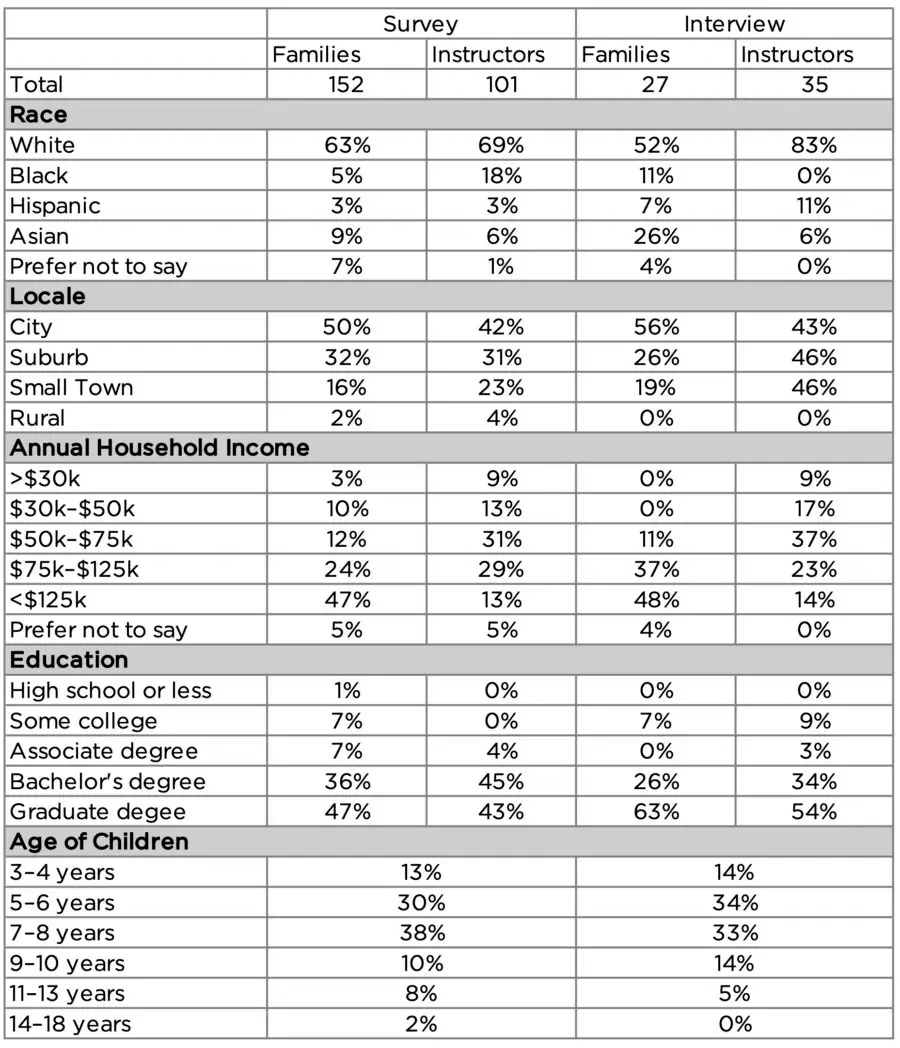CRISIS BREEDS INNOVATION: Pandemic Pods and the Future of Education
Appendix
About This Project
In the fall of 2020, the Center on Reinventing Public Education launched a national learning agenda on the small pandemic learning communities known as pods. We set out to explore the pandemic pod landscape, both as a response to school closures during the COVID-19 pandemic and as a source of new insights for the field about what works for students, families, and educators. The project includes observations of over 80 pandemic learning communities, with 22 case studies and more than 200 interviews with parents, educators, and school district and community leaders.
This report draws upon data from one strand of our larger project, a survey and set of interviews with families and educators who participated in pandemic pods.
In February 2021, we administered an original survey for families or educators who organized or participated in a pandemic pod. The surveys asked why families or educators chose to join or lead the pod, what services and supports the pods offered students and families, how participants’ experiences with pods compared to their experiences in traditional school settings, and what they learned from their pandemic pod experience that they might take with them into the future.
Our focus on families’ and educators’ experiences with pods called for a targeted sampling approach. To find participants, we tapped the social media communities that aspiring pod families and educators formed in response to the pandemic. These online groups served as a forum where families could post jobs, educators could find work, and pod participants could wrestle with the many issues and questions that this novel learning structure raised.
Our primary dissemination outlet was the Facebook group Pandemic Pods – Main, the largest social media group on pandemic pods. At the time of our survey, it had more than 44,000 members and hosted 89 local chapters across 27 states, from the boroughs of New York City to Albuquerque, New Mexico, to the Tri-Cities in Eastern Washington State. We also disseminated the survey to parents and educators in pods supported by the National Parents Union, which has provided logistical advice and accelerator grants to support pods that serve low-income families in communities of color.
We disseminated our survey over five waves, varying the time of day and day of the week to capture as broad a group of potential respondents as possible. Participants were promised a $20 gift card for completing the survey. Despite our outreach and incentives, participation rates were lower than we’d hoped. In all, we received completed surveys from 152 parents with a child participating in a pod, and from 101 instructors supervising a pod.
Our sample was predominantly white, well-educated, and economically advantaged, with respondents more likely to live in urban or suburban communities than rural areas (Table 1). Sixty-three percent of parents and 69 percent of educators were white; 5 percent of parents and 18 percent of educators were Black. About 80 percent of families and instructors had graduated from college, including more than 40 percent who had a graduate degree. Nearly half of parent respondents reported a household income above $125,000 per year. Our respondents included individuals living in all regions of the country (Figure i).
Table 1. Demographic characteristics of survey and interview sample

Figure i. Distribution of survey respondents, by state

To build upon our survey results, we spoke with participants who indicated they were willing to take part in a follow-up interview. We completed interviews with 27 parents and 35 pod instructors spanning all regions of the United States. The majority of interviews were conducted in March and April 2021.
Our questions prompted participants to share thoughts and stories about their pod experiences during the pandemic. We sought to understand more about the context of their pod: what motivated them to join; what went well and what was challenging; how their experience compared to school or work before the pandemic; and in what ways, if any, the pod impacted their beliefs about education or future plans for their child or career.
This generated a rich set of qualitative data, which a team of researchers coded using Dedoose. Researchers reviewed excerpts to identify key themes and contrasting examples and experiences, which inspired the reports that comprise this series.


